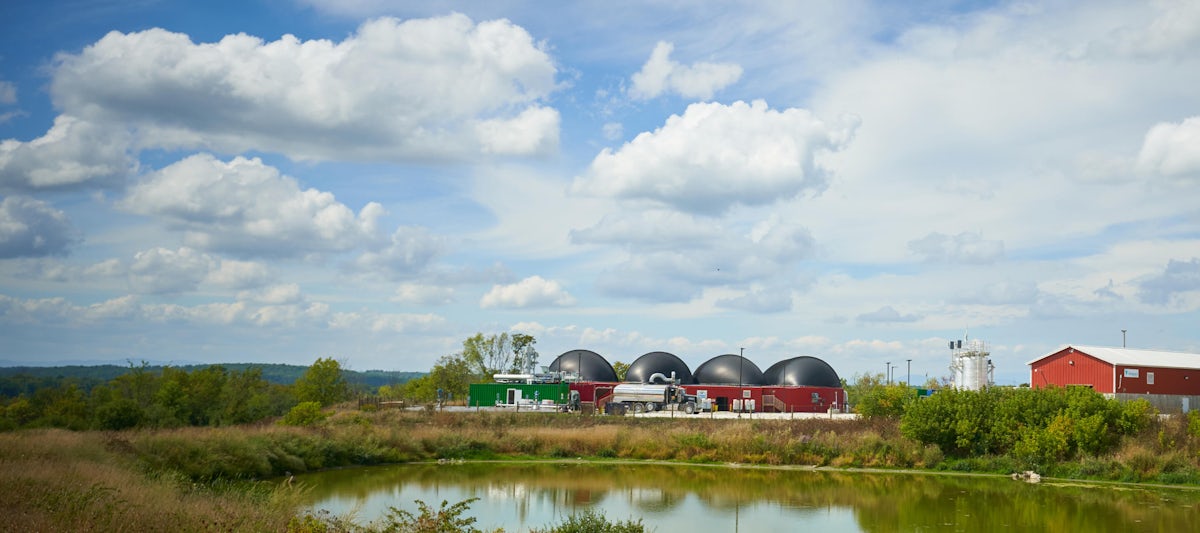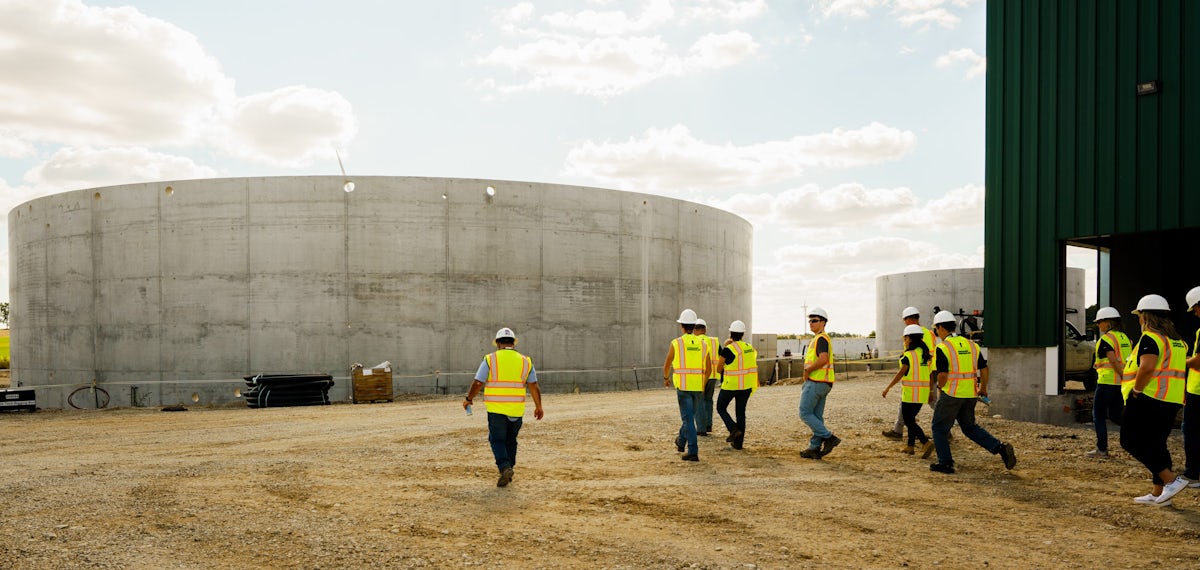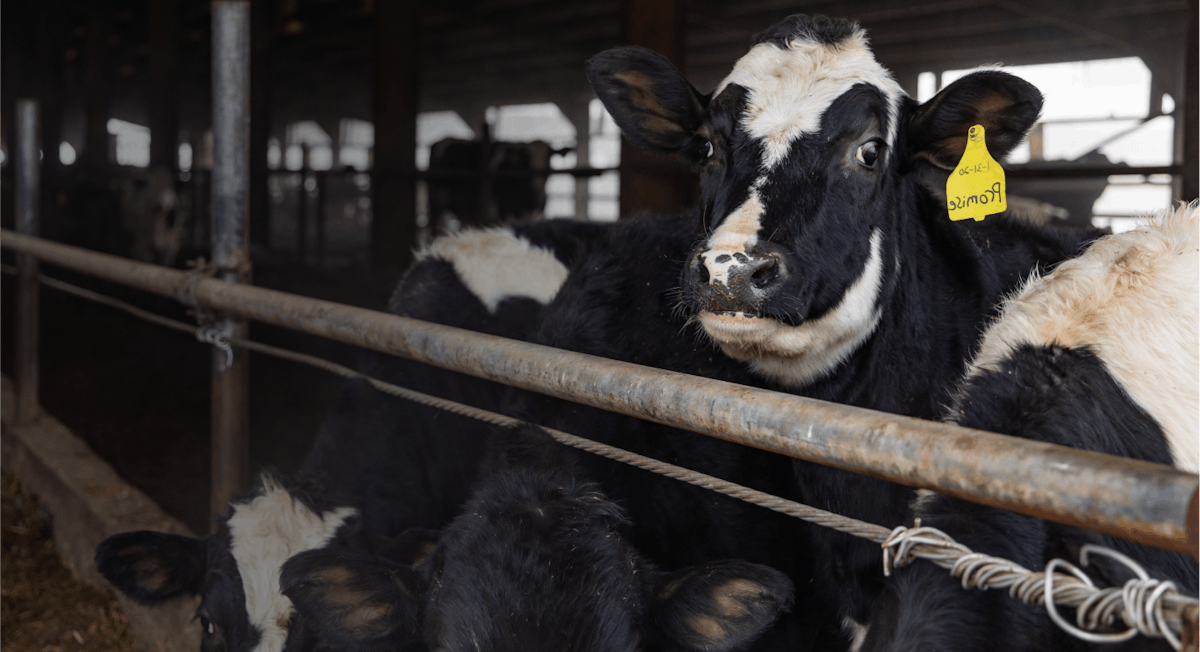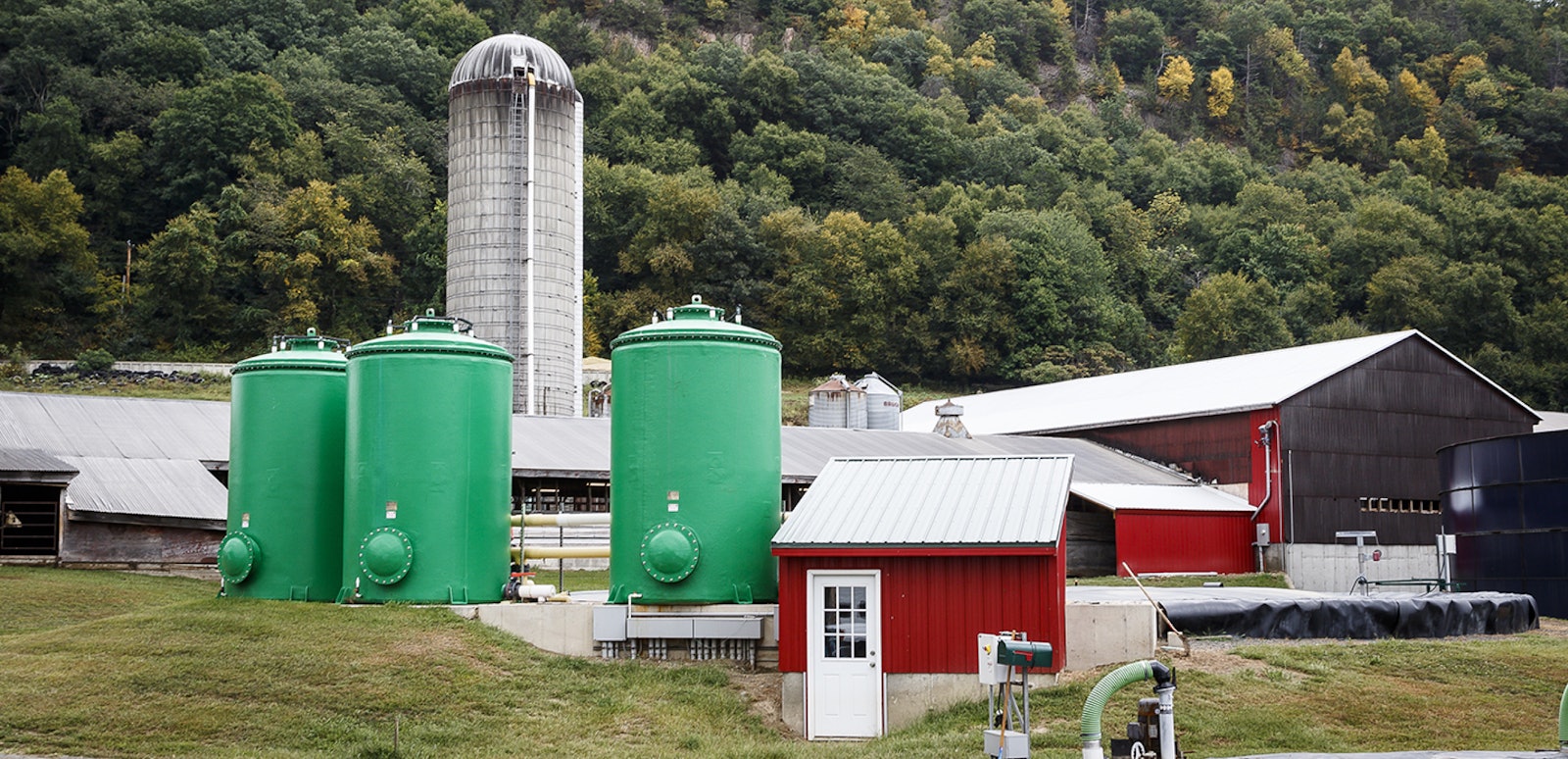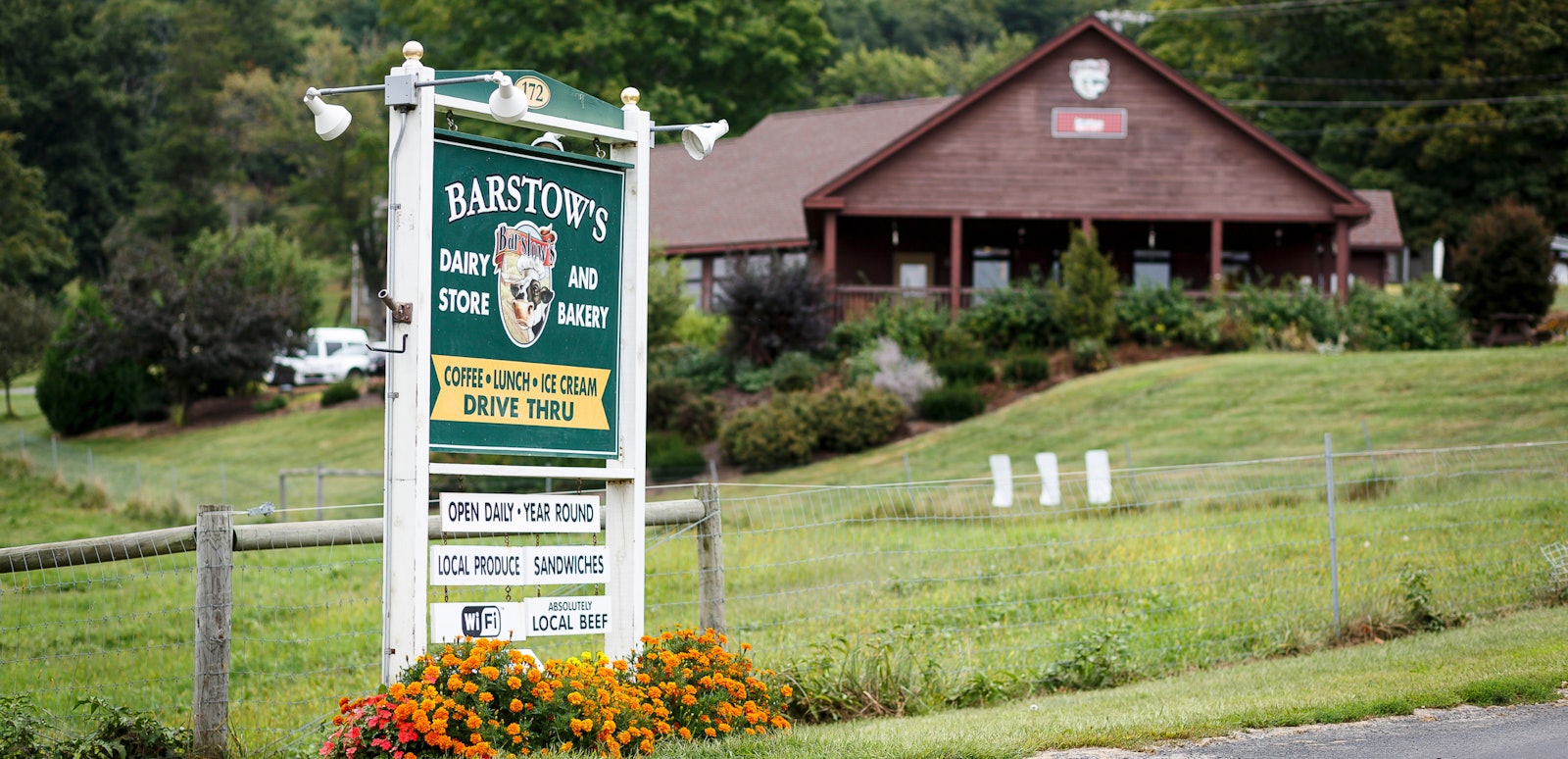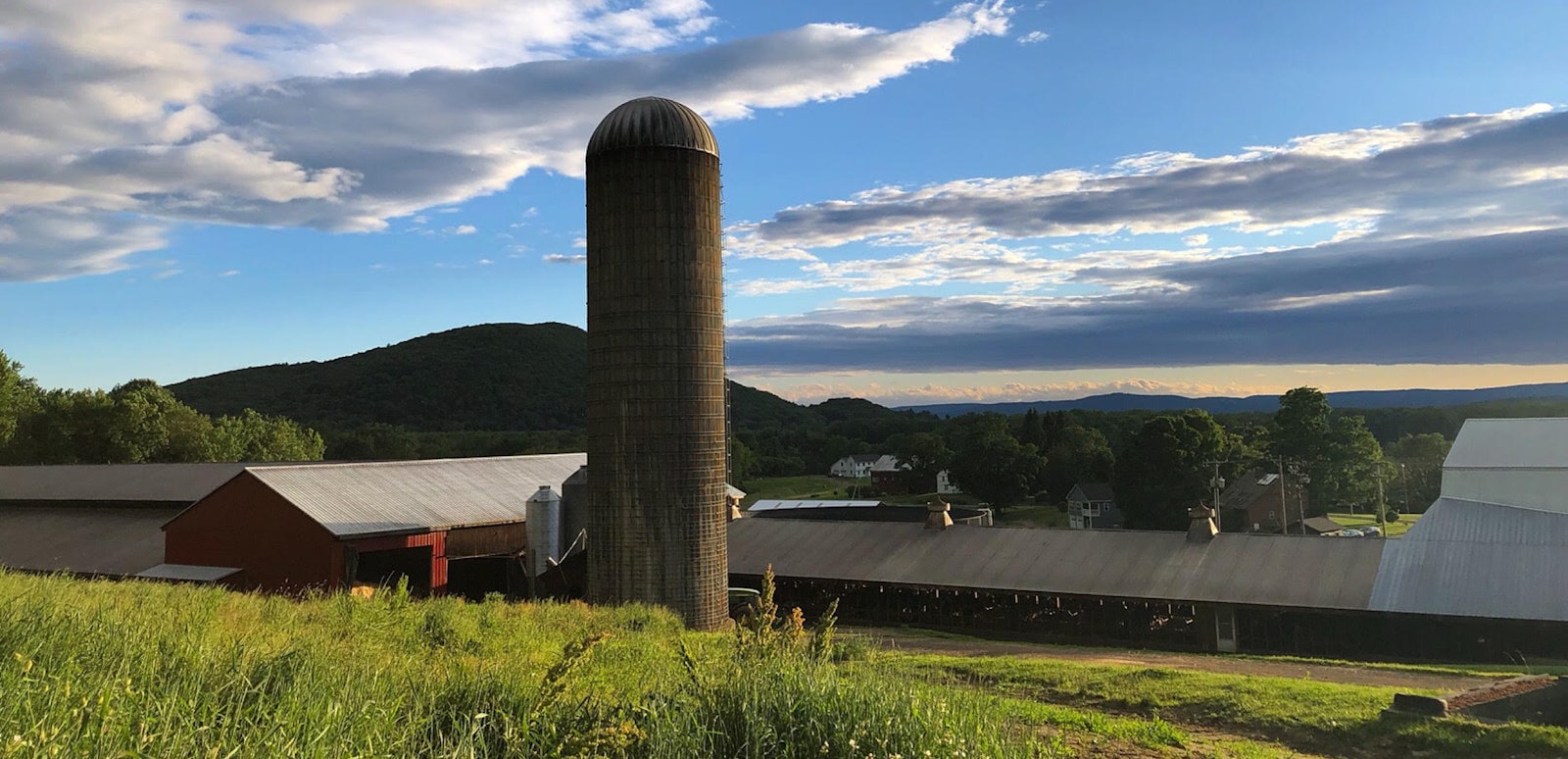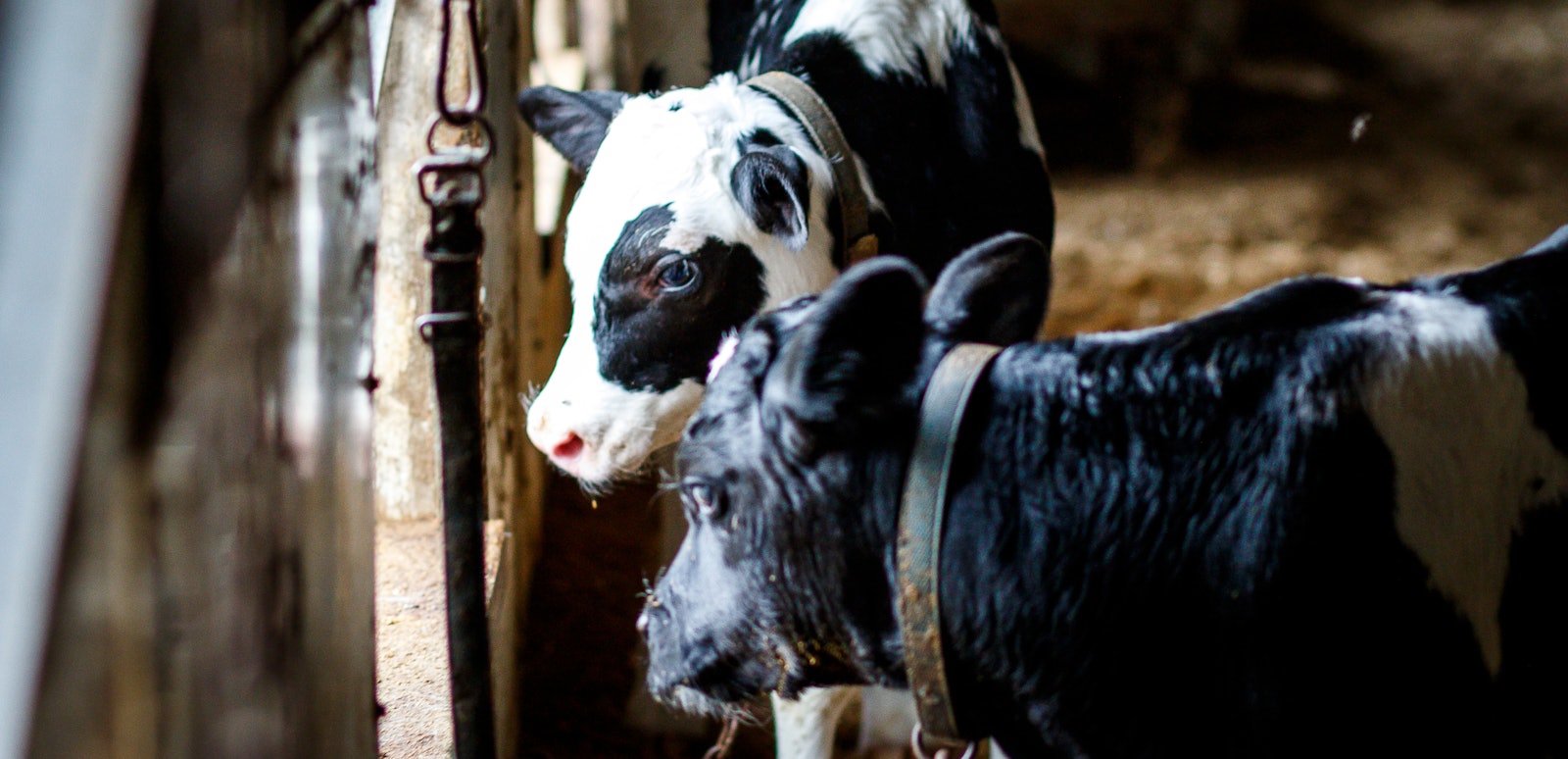All Codigestion Projects
Hadley, MA – Barstow’s Longview Farm
Hadley, MA
Barstow’s Longview Farm in Hadley, Massachusetts is a seventh-generation family farm, founded in the early 1800s.
The farm is a member of the Cabot Creamery/Agri-Mark Cooperative. To sustain the farm for future generations, the Barstow family pursued an opportunity to house one of the first anaerobic digesters in New England.

Project Facts
- 450-acre farm with 550 cows
- Founded in early 1800s
- Produces 15,000 lbs. of milk daily
- Opened Barstow’s Dairy Store and Bakery in 2008
- Located in the Hockanum National Historic District, Route 47, Hadley, MA
- Digester was built in 2013 and expanded in 2016
- Annual digester inputs: 24,000 tons of food waste and 9,125 tons of manure
- Annual digester output: Powers two engines producing 800tkW and more than 5,100 MWh of renewable energy/year. Produces 30,000 tons of low-carbon fertilizer and offsets nearly 3,000 tons of CO2 emissions annually
Impact
The Vanguard Renewables Farm Powered anaerobic digester partnership with Barstow’s Longview Farm began in 2013. With the expansion of the anaerobic digester project in 2016, it is one of the largest and most modern anaerobic digestion systems in New England.
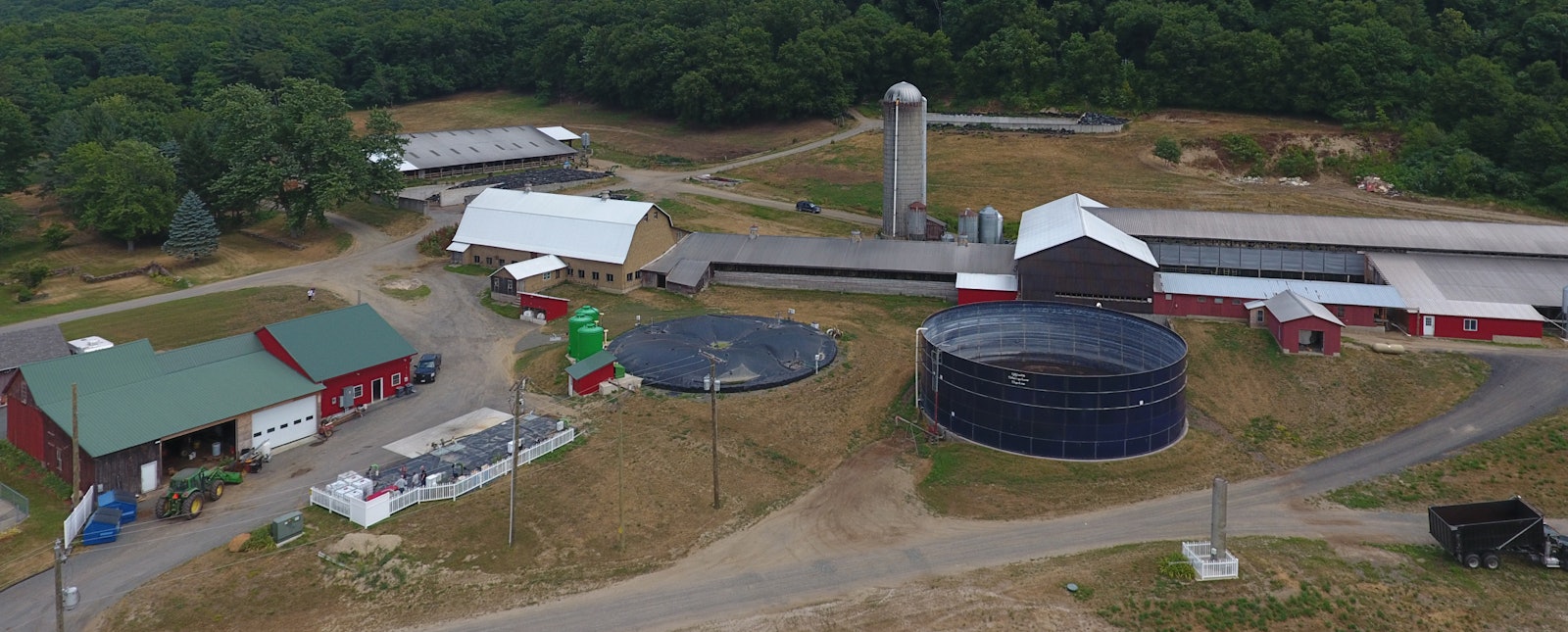
The farm receives nearly 24,000 tons of food waste annually from food and beverage processors, supermarkets, institutions, businesses, and food service operations such as Cabot Creamery/Agri-Mark Cooperative, Geissler’s Supermarkets, HP Hood, and Garelick. The food waste is combined with more than 9,000 tons of manure a year from the farm in a 600,000-gallon digestion tank. Manure and food waste are mixed and microorganisms convert sugars, fats, and other compounds into biogas, annually producing more than 5,100 MWh of renewable energy and 30,000 tons of low-carbon fertilizer. The facility offsets nearly 3,000 tons of CO2 emissions annually. This is equivalent to taking 650 cars off the road for one year.
Farm Benefits at a Glance
- Income diversification
- Low-carbon fertilizer, reducing the need for chemical fertilizers
- Reduced energy cost
- Free heat
- Odor reduction
- Increased corn and hay crop yields
- Enhanced nutrient management plan

